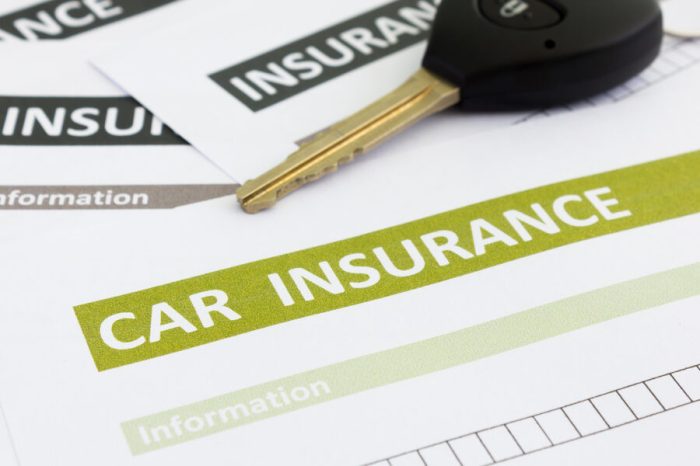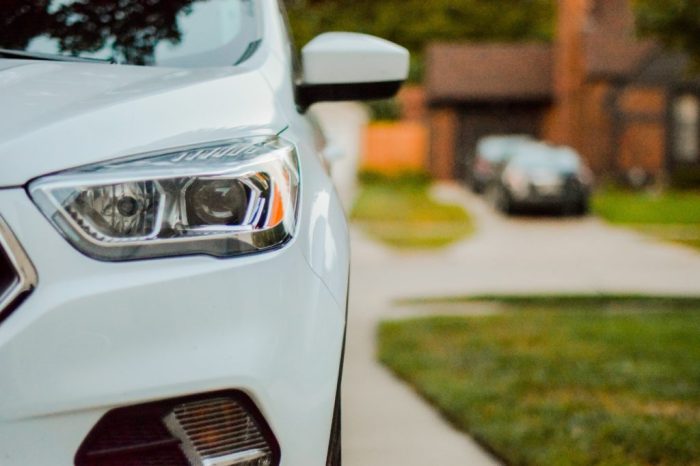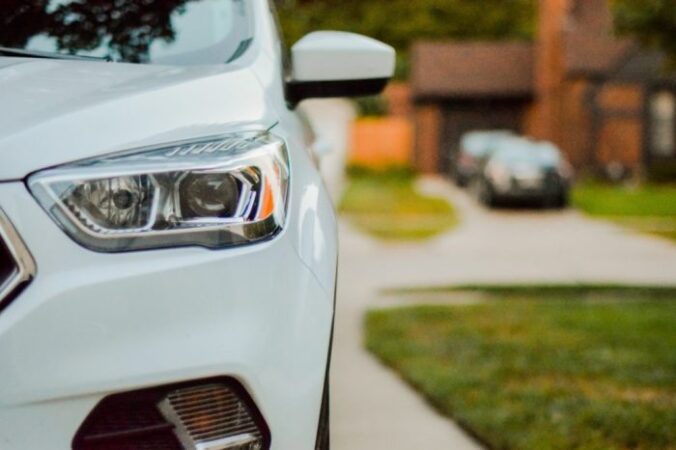
Can I insure a car that isn’t in my name? This is a common question, especially for those who need to drive a vehicle they don’t own. Whether you’re borrowing a car from a family member, renting a vehicle, or driving a car for work, understanding the intricacies of insurance ownership is crucial. This article explores the various aspects of insuring a car that isn’t in your name, delving into the legal implications, policy options, and essential requirements.
The process of insuring a car not in your name can be more complex than simply adding a driver to your existing policy. Insurance companies have specific guidelines and requirements for these situations, and it’s essential to understand them to ensure you have adequate coverage and avoid any legal complications. This article aims to provide a comprehensive overview of the topic, offering insights into the various aspects of insuring a car that isn’t in your name.
Understanding Insurance Ownership

When you insure a car, you’re essentially transferring the risk of financial loss associated with accidents, theft, or damage to the insurance company. This risk transfer is formalized through a contract called an insurance policy. The ownership of the insurance policy is distinct from the ownership of the vehicle itself.
Insurance Ownership and Vehicle Ownership
The individual or entity named on the insurance policy is considered the policyholder, regardless of who owns the vehicle. This means that the policyholder is responsible for paying premiums and has the right to make claims under the policy. The vehicle owner may or may not be the same person as the policyholder.
- For example, if you buy a car for your child, you may choose to insure the car under your own name, even though your child is the vehicle owner. You would then be responsible for paying premiums and making claims.
Legal Implications of Insuring a Car Not in Your Name
While it’s possible to insure a car that is not in your name, there are some legal implications to consider:
- Proof of Ownership: If you’re not the vehicle owner, you’ll need to provide proof of permission to insure the car. This may include a signed statement from the vehicle owner granting you permission to insure the car.
- Liability: If you’re driving a car that’s not in your name, you could be held liable for any accidents or damages caused while driving the vehicle. This is because you’re considered the operator of the vehicle and are legally responsible for its safe operation.
Situations Where Insuring a Car Not in Your Name Might Be Necessary
There are some situations where insuring a car not in your name might be necessary:
- Family Members: You may need to insure a car for a family member who is not yet old enough to own a car in their own name. This is common for young drivers who are learning to drive or who are not yet financially independent.
- Business Use: If you’re using a car for business purposes, you may need to insure the car under your business’s name. This ensures that your business is protected from any liability associated with the vehicle.
- Loaned Vehicles: If you’re borrowing a car from a friend or family member, you may need to insure the car under your own name. This will provide you with coverage in case of an accident or damage to the vehicle.
Types of Insurance Policies
Insuring a car that’s not in your name requires a specific type of insurance policy. There are several options available, each with its own benefits and limitations. Let’s explore the common types of car insurance policies that can be used to cover a vehicle not registered under your name.
Liability Insurance
Liability insurance is a fundamental type of car insurance that covers damages and injuries caused by you to other people or their property in an accident. It doesn’t cover your own vehicle, but it’s a legal requirement in most jurisdictions.
Liability insurance is often referred to as third-party insurance, as it protects third parties from your actions.
When insuring a car not in your name, liability insurance can be a suitable option, especially if you’re borrowing the vehicle for a short period. This policy will protect you from financial liability in case you cause an accident while driving the borrowed car.
Comprehensive and Collision Coverage
Comprehensive and collision coverage are optional components of a car insurance policy that offer protection for your vehicle. Comprehensive coverage covers damage to your car caused by events like theft, vandalism, or natural disasters. Collision coverage covers damage to your car resulting from an accident, regardless of who’s at fault.
While these coverages are typically used for cars you own, some insurance companies might offer them for borrowed vehicles under specific circumstances. This could involve providing proof of ownership or a written agreement with the owner.
Named Non-Owner Insurance
Named non-owner insurance is specifically designed for individuals who frequently drive cars they don’t own, like rental cars or borrowed vehicles. This policy provides liability coverage for the driver, regardless of the car they’re driving.
Named non-owner insurance can be a convenient option for individuals who often drive vehicles not registered in their name.
It’s important to note that this type of policy typically doesn’t cover damage to the vehicle itself, only the driver’s liability.
Other Considerations
When choosing a car insurance policy for a vehicle not in your name, it’s essential to consider:
- The vehicle’s value: The value of the car will influence the cost of insurance, especially if you’re seeking comprehensive and collision coverage.
- Your driving history: Your past driving record, including accidents and violations, will affect your insurance premiums.
- The owner’s insurance: If the vehicle owner already has insurance, it’s crucial to understand how your policy will interact with their existing coverage.
- The length of the loan: If you’re borrowing the vehicle for an extended period, a longer-term insurance policy might be more suitable.
Requirements for Insuring a Car Not in Your Name: Can I Insure A Car That Isn’t In My Name

Securing insurance for a vehicle not registered in your name can be a bit more intricate than insuring your own car. It’s essential to understand the specific requirements and documentation needed to ensure your coverage is valid and meets the necessary legal obligations.
Documentation Required
The documentation required for insuring a car not in your name typically includes:
- Proof of Ownership: This could be the vehicle’s title, registration certificate, or a bill of sale. The insurance company will need to verify that the car is legally owned by the person who is applying for insurance.
- Driver’s License: You’ll need a valid driver’s license in your name to be listed as the insured driver. The insurance company will verify your driving history and license status.
- Vehicle Identification Number (VIN): This unique identifier helps the insurance company identify the specific vehicle being insured. It’s usually found on the dashboard, driver’s side door jamb, and on the vehicle title.
- Usage Information: The insurance company will want to know how you plan to use the vehicle, such as for personal use, commuting, business purposes, or occasional driving. This information helps determine the appropriate coverage and premium.
- Previous Insurance Information: If you have a history of insurance coverage, the insurance company will ask for information about your previous policies, including your coverage details and claims history. This information can impact your premium.
Specific Requirements of Different Insurance Companies
Insurance companies have their own specific requirements and policies for insuring vehicles not in the owner’s name. It’s crucial to contact the insurance company directly to understand their specific criteria and documentation needs.
- Proof of Permission: Some insurance companies might require written permission from the vehicle owner allowing you to drive and insure the car. This could be in the form of a notarized statement or a signed letter.
- Additional Drivers: If other individuals will be driving the vehicle, you may need to provide their driver’s license information and driving history. The insurance company will assess their driving records and may adjust the premium based on their risk profile.
- Coverage Options: The types of coverage available for a vehicle not in your name may differ from standard policies. You may need to discuss specific coverage needs with the insurance company, such as liability, collision, comprehensive, and uninsured motorist coverage.
Impact of Vehicle Usage and Driver History on Insurance Eligibility, Can i insure a car that isn’t in my name
The way you intend to use the vehicle and your driving history can significantly impact your eligibility for insurance and the premium you’ll pay.
- Usage: If you’re using the vehicle for business purposes, the insurance company may require additional coverage or adjust the premium accordingly. For example, if you’re using the car for deliveries, the insurance company may require commercial auto insurance.
- Driver History: Your driving record, including any accidents, traffic violations, or DUI convictions, will be considered by the insurance company. A history of accidents or violations could result in higher premiums or even denial of coverage.
Benefits and Considerations
Insuring a car not in your name can present both advantages and disadvantages. Understanding these aspects is crucial before making a decision.
Financial Protection and Peace of Mind
Insuring a car not in your name can provide financial protection and peace of mind, especially if you are borrowing or leasing a vehicle.
- Financial Protection: In the event of an accident, the insurance policy will cover the costs of repairs or replacement, protecting you from significant financial burdens. This is especially important if you are borrowing a car and are not covered by the owner’s insurance.
- Peace of Mind: Having insurance on a car not in your name can provide peace of mind, knowing that you are covered in case of an accident or other unforeseen events. This can be particularly important if you are driving a car that you are not familiar with.
Drawbacks and Risks
While there are benefits to insuring a car not in your name, there are also potential drawbacks and risks to consider.
- Higher Premiums: Insurance companies may charge higher premiums for insuring a car not in your name, as they perceive a higher risk. This is because you may not have the same level of interest in maintaining the car as the owner, and you may be more likely to drive it in a risky manner.
- Limited Coverage: The insurance coverage for a car not in your name may be limited compared to a traditional car insurance policy. For example, you may not be covered for certain types of accidents or events.
- Potential Disputes: If you are involved in an accident while driving a car not in your name, there may be disputes with the insurance company regarding coverage and liability.
Cost Comparison
The cost of insuring a car not in your name will vary depending on factors such as the type of vehicle, your driving record, and the insurance company.
- Traditional Car Insurance: Traditional car insurance policies typically cover the owner of the vehicle, as well as any authorized drivers. These policies often offer comprehensive coverage, including liability, collision, and comprehensive coverage.
- Non-Owner Car Insurance: Non-owner car insurance is designed specifically for individuals who drive cars that they do not own. This type of insurance typically provides liability coverage, but may not include collision or comprehensive coverage.
- Cost Differences: Non-owner car insurance premiums are generally lower than traditional car insurance premiums, as they offer less coverage. However, the cost of insuring a car not in your name may be higher than traditional car insurance if you have a poor driving record or if the vehicle is considered high-risk.
Closing Notes

Insuring a car that isn’t in your name can present unique challenges, but with careful consideration and a clear understanding of the available options, you can find the right solution for your specific needs. By weighing the benefits and risks, exploring alternative insurance options, and adhering to legal and ethical considerations, you can make informed decisions about insuring a car that isn’t in your name, ensuring both financial protection and peace of mind.
FAQ
Can I get insurance for a car I’m borrowing from a family member?
Yes, you can usually get insurance for a car you’re borrowing from a family member. You’ll need to inform your insurance company about the situation, and they may require the vehicle owner’s permission and details. They may also offer a temporary insurance policy or add you to their existing policy.
What are the benefits of insuring a car not in my name?
The main benefit of insuring a car not in your name is financial protection. In case of an accident, your insurance will cover damages to the vehicle, injuries, and other liabilities. This provides peace of mind and ensures you’re not held personally responsible for any financial losses.
Is it cheaper to insure a car not in my name?
The cost of insuring a car not in your name can vary depending on several factors, including the type of policy, the vehicle’s value, your driving history, and the insurance company. In some cases, it may be more affordable than traditional car insurance, but it’s essential to compare quotes and consider your specific needs.





